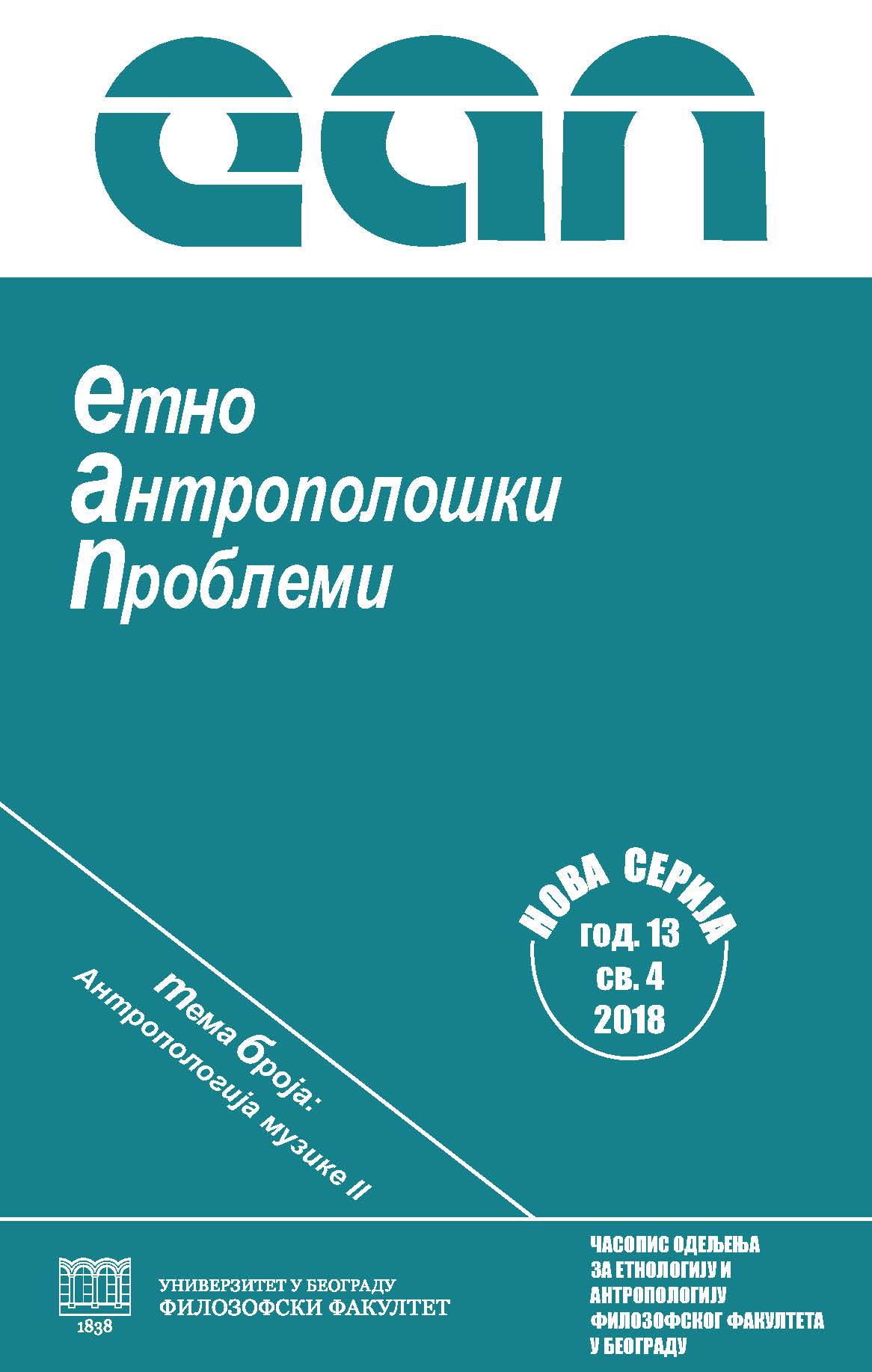Утицај музике на међуетничке односе становника Сарајева и Мостара
The influence of music on interethnic relations of Sarajevo and Mostar’s inhabitants
Author(s): Bogdan Dražeta, Zorana GujaSubject(s): Anthropology
Published by: Филозофски факултет, Универзитет у Београду
Keywords: music; narratives about music; use of music; interethnic relations; local identities; Sarajevo; Mostar; Bosnia and Herzegovina
Summary/Abstract: Music and musical forms represent unfailing part of every human society and culture. Music can bond people and their communities, as it can be „in the service” of creating and transforming identities, e.g. ethnic, regional and local. Ethnological and anthropological view on music treats this phenomenon as the cultural product, which has certain meanings and influence on society and culture, i.e. their members in general. Every person from a cultural group has its own reflections on music, by recognizing abovementioned meanings, which can be same or different than those of other group members. This is why identity building process with use of music is very interesting for examination. During our fieldwork in Sarajevo and Mostar at the end of 2017, we noticed attitudes and reflections on partial and situational overcoming of ethno-political divisions through music. Bosnian and Herzegovinian political system is based on the ethnic principle, legally supported by Dayton Peace Agreement, a document which stopped the civil war 1992–1995. Yet the context of common musical tradition of all ethnic groups in Bosnia and Herzegovina is giving the framework on examining the relation between music and identity in this area, where identity question is a very important process looking historically. In this paper, we will present basic narratives on how music and musical forms impacts on interethnic relations and local, urban identity building process. These narratives were formed on the basis of media reports and conversations with inhabitants from aforementioned urban areas and their wider surroundings. It can be said at the level of Bosnia and Herzegovina, music shows different direction in contrast to actual public and media discourse. We believe that this contribution can give instance on thinking about how music in a certain society (re)shapes people’s values, attitudes and behavior of people. Moreover, collaboration between ethnology and anthropology on the one hand, as well as ethnomusicology on the other hand, may bring some interesting results and exchange of experience for further research.
Journal: Етноантрополошки проблеми
- Issue Year: 13/2018
- Issue No: 4
- Page Range: 899-925
- Page Count: 27
- Language: Serbian

